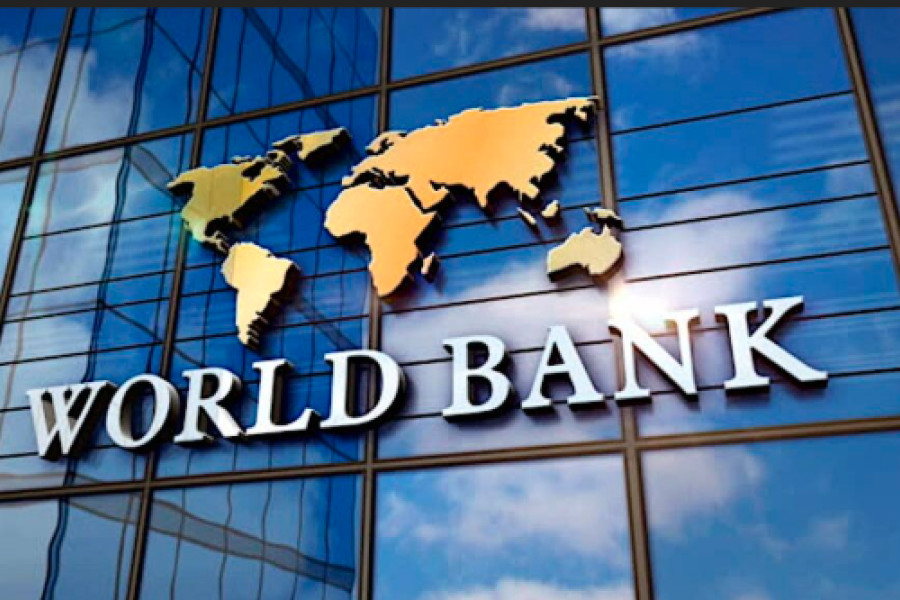
The Trump Tariff Shockwave: Reshaping Global Trade and Africa's Development Trajectory
President Trump's recent tariff policies have ignited a geopolitical firestorm, shaking the foundations of global trade and forcing a re-evaluation of established international economic norms. The announced 90-day pause on increased tariffs for most nations, while offering a semblance of temporary relief, masks a deeper, more profound shift in the dynamics of international commerce. This pause, far from being a gesture of goodwill, represents a strategic maneuver, designed to apply selective pressure and extract concessions from key trading partners. However, the starkly divergent treatment of China, with the imposition of a staggering 145% tariff, signals a decisive turn towards a confrontational, zero-sum approach, threatening to unravel decades of carefully constructed economic interdependence. The resulting retaliatory measures from Beijing, including a 125% tariff on U.S. goods, underscore the severity of this rupture, marking a perilous escalation in the world's most critical bilateral trade relationship.
European Crossroads: Navigating the Turbulent Currents of Trade Policy
For the European Union, the initial imposition of a 20% tariff represented a direct challenge to its economic sovereignty and a stark reminder of its vulnerability in an increasingly volatile global trade landscape. The threat to Germany's automotive sector, a cornerstone of European industrial might, and the potential disruption of agricultural exports, highlighted the interconnectedness of global supply chains and the far-reaching consequences of unilateral policy shifts. The temporary reprieve offered by the 90-day pause provides a window for diplomatic engagement, but it does not erase the underlying uncertainty that now permeates transatlantic relations. The EU, accustomed to operating within a framework of multilateralism and rules-based trade, finds itself navigating uncharted waters, where the principles of predictability and stability are increasingly eroded. This forced adaptation necessitates a reassessment of its strategic autonomy, compelling it to diversify its economic partnerships and strengthen its internal market to mitigate future external shocks.
African Economies Under Strain: Confronting the Fallout of Unilateral Tariffs
The African continent, often relegated to the periphery of global economic discourse, finds itself thrust into the center of this trade maelstrom. The initial tariff impositions, particularly the disproportionately high rates levied on South Africa and Lesotho, exposed the fragility of its integration into the global trading system and the limitations of preferential trade agreements. These policies, far from being mere economic adjustments, represent a profound challenge to Africa's development trajectory, jeopardizing decades of efforts aimed at poverty reduction and economic diversification.
Specifically, the initial imposition of tariffs, particularly the steep 30% on South Africa and the crippling 50% on Lesotho, laid bare the vulnerabilities inherent in Africa's reliance on preferential trade agreements with the United States. These policies, far from being mere economic adjustments, represent a profound shift in the geopolitical landscape, signaling a retreat from established norms of international cooperation and a move towards a more transactional, power-centric approach. For African nations, this translates to a stark realization: the foundations of their economic development, often built on the promise of stable and predictable trade relations with Western powers, are now subject to the whims of unilateral policy shifts.
The threat to key industries, such as Lesotho's textile sector and South Africa's mining exports, underscores the human cost of these policy shifts, potentially reversing hard-won gains and exacerbating existing inequalities. Reduced export revenues translate to diminished fiscal space for African governments, limiting their ability to invest in essential public services such as education, healthcare, and infrastructure. In a continent where poverty remains a pervasive challenge, these policy shifts threaten to reverse hard-won gains, exacerbating existing inequalities and fuelling social unrest.
The forced pivot towards alternative trading partners, such as China and India, while offering potential avenues for diversification, raises concerns about new forms of economic dependency and the long-term implications for Africa's strategic autonomy. The 90-day pause offers a moment for reflection, but it does not address the fundamental issue: the need for African nations to strengthen their regional integration initiatives, such as the African Continental Free Trade Area (AfCFTA), and assert their collective voice on the global stage.
Targeted Tariffs and Uneven Impacts: Africa's Varied Responses
While a baseline 10% tariff was applied to most imports, several African countries faced considerably higher "reciprocal" tariffs. Lesotho bore the heaviest burden with a 50% tariff, followed by Madagascar at 47%, Mauritius at 40%, and South Africa at 30%. These elevated rates were ostensibly calculated based on the premise that these nations imposed higher tariffs on U.S. goods, a claim contested by some trade analysts. The announcement of these tariffs on April 9, 2025, sent shockwaves across the African continent, jeopardizing established trade flows facilitated by the African Growth and Opportunity Act (AGOA), which had previously granted duty-free access to the U.S. market for many African exports. The immediate response from African nations varied, reflecting the diverse economic structures and trade dependencies on the United States. South Africa's government expressed strong concern, labeling the 30% tariff as "punitive" and a barrier to trade and shared prosperity. They pledged to seek redress through diplomatic channels and emphasized the urgency of negotiating a new, mutually beneficial trade agreement with the U.S. Lesotho's Trade Minister voiced fears of devastating job losses and factory closures in its vital textile industry due to the 50% tariff. Other affected nations, like Madagascar, also signaled their intent to engage with U.S. authorities to understand and potentially mitigate the impact.
Beyond immediate diplomatic reactions, a broader strategic reassessment began to take shape across the continent. The vulnerability exposed by the sudden tariff changes underscored the need for African nations to diversify their trade partners and strengthen intra-continental trade linkages. Calls for accelerated implementation of the African Continental Free Trade Area (AfCFTA) grew louder, positioning it as a crucial mechanism for building economic resilience and reducing dependence on external markets susceptible to unilateral policy shifts. While some countries hinted at potential retaliatory measures, the prevailing sentiment favored dialogue and a push for a more stable and predictable long-term trade relationship with the United States, albeit one grounded in mutual respect and equitable terms.
SADC in a Bind: Zimbabwe's Unilateral Move and Regional Implications
Zimbabwe's response to President Trump's tariff impositions was particularly notable, especially given its position as the current chair of the Southern African Development Community (SADC). Instead of mirroring the retaliatory stance adopted by some nations, Zimbabwe's President Emmerson Mnangagwa made the somewhat surprising decision to suspend all tariffs on goods imported from the United States. This move, framed as a gesture aimed at fostering "amicable relations" and promoting "equitable trade," generated considerable debate within the region and beyond.
The rationale behind Zimbabwe's decision appeared to be a calculated attempt to improve its strained relationship with the U.S., potentially leading to a reconsideration of existing sanctions and an increase in bilateral trade. However, this unilateral action drew criticism from some quarters, particularly from those who argued that it undermined regional solidarity and the potential for a unified SADC response. Critics, including former Zimbabwean Finance Minister Tendai Biti, characterized the move as a "selfish" and "suicidal betrayal" of the SADC region, emphasizing the importance of a coordinated regional strategy in the face of external trade threats.
The implications of Zimbabwe's response for the SADC region are multifaceted. Firstly, it highlighted the challenges of achieving a unified stance among SADC member states, each with its own unique economic and political considerations. Secondly, it raised concerns about the potential for a "divide and conquer" strategy, where external powers could exploit regional divisions to secure favorable trade deals. Thirdly, it prompted discussions about the need to strengthen SADC's capacity to coordinate regional trade policies and present a united front in international trade negotiations. Furthermore, this action placed an additional burden on the SADC region, to attempt to find a balance between individual nations trade desires, and the overall regions best interests. It has forced the SADC organization to have to perform a balancing act.
The Sino-American Trade Divide: A Geopolitical Power Struggle
The escalating trade war between the United States and China represents a geopolitical fault line, with far-reaching implications for the global economy and the international order. The imposition of a 145% tariff on Chinese goods, effectively pricing them out of the U.S. market, signals a decisive break from the established norms of economic interdependence. China's retaliatory measures, including a 125% tariff on U.S. goods, underscore the severity of this rupture, threatening to unravel the intricate web of bilateral trade that has underpinned global economic growth for decades. This confrontation, far from being a mere trade dispute, represents a clash of strategic visions, with both nations vying for economic and technological dominance. The resulting disruption of global supply chains, the potential for increased inflationary pressures, and the risk of a broader economic slowdown highlight the interconnectedness of the global economy and the far-reaching consequences of unilateral policy actions. The implications extend beyond economics, impacting broader geopolitical stability, as nations are forced to navigate an increasingly polarized world order.
Charting a New Course: The Global Trade Aftermath and Future Imperatives
The global fallout from Trump's tariff policies extends beyond the immediate economic consequences, raising fundamental questions about the future of the international trading system and the balance of power in the 21st century. The weakening of multilateral institutions, the rise of protectionism, and the increasing reliance on unilateral actions signal a potential shift towards a more fragmented and contested global order. The 90-day pause offers a window for diplomatic engagement, but it does not guarantee a return to the status quo ante. The world is witnessing a reconfiguration of economic alliances, with nations seeking to diversify their partnerships and reduce their reliance on any single economic power. The imperative for international cooperation and dialogue has never been greater, as the world grapples with the challenges of navigating an increasingly complex and interconnected global landscape. The next 90 days will be critical in determining whether the world can avert a descent into a new era of economic nationalism and geopolitical rivalry.
Related Stories

The Future of Sustainable Development in an Artificial Intelligence Era: Africa’s Path Forward

The World Bank at 80: An Afrocentric Critique of Poverty Alleviation Efforts